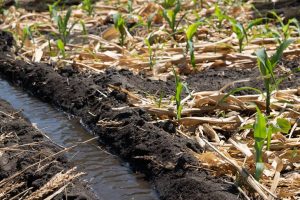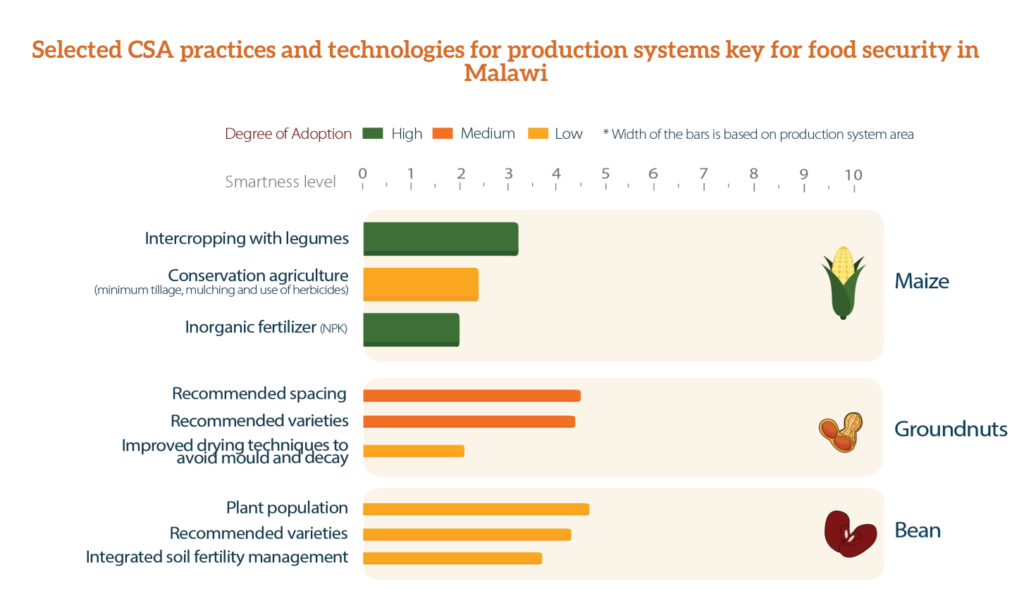
Climate Smart Agriculture in Malawi

Climate change has for the past years affected food security in the Sub Saharan African Region. The uncertainty in the amount and distribution of rainfall has exacerbated the food crisis in the region mainly because the region is dependent on rainfed agriculture. The Food and Agriculture Organization (FAO) introduced the Climate Smart Agriculture (CSA) technology, a portfolio of agriculture practices intended to help smallholder farmers to adapt to climate change while improving productivity.
Facts and Figures
Malawi has more than 90% of the population’s livelihood dependant on agriculture. The agriculture sector accounts for 30% of the country’s Malawi’s Gross Domestic Product (GDP). Maize is the main stable grown for food under a rainfed system, but productivity has been reportedly low, especially for female headed households.

CSA technologies have been actively promoted in Malawi for the past decade. However, large scale adoption of CSA practices has been reportedly low, citing barriers such as lack of appropriate knowledge, poor access to financial resources, and tenure insecurity. Conservation Agriculture in Malawi for instance, has been reported to be in the range of 1 and 2 percent of land under cultivation.
There are several service providers in Malawi that are currently promoting CSA related programs. Much as this may be positive in the path to scaling up, there is need for good coordination among CSA promoters to avoid duplication of efforts which may lead to luck of sustainability of intervention. The results of a thesis survey conducted on the smallholder farmers of the VSLAs groups under the CARE pathways project confirm that there are several CSA service providers implementing CSA. Without coordination among CSA promoters, there can be different perspectives of the technology promoted to farmers (especially for the Conservation Agriculture, CA, which has been promoted for many years in Malawi) which may contribute to poor understanding of the technology among the farmers. Among other factors, the poor understanding and lack of awareness is cited by other studies to result in poor adoption rates and dis-adoption.

Opportunity for scaling up CSA adoption
Notwithstanding the pronounced barriers, there exist opportunities to large scale adoption of CSA technologies. Improved access to precise and opportune weather and market information, inputs, loans, and extension services for farmers represents an opportunity for scaling adoption.
Other opportunities lie in establishing a common national platform for CSA and having CSA regulations harmonized.
References
MUDEGE, N. N., MDEGE, N., ABIDIN, P. E. & BHATASARA, S. 2017. The role of gender norms in access to agricultural training in Chikwawa and Phalombe, Malawi. Gender, Place & Culture, 24, 1689-1710.
KASSAM, A., FRIEDRICH, T. & DERPSCH, R. 2019. Global spread of conservation agriculture. International Journal of Environmental Studies, 76, 29-51.
CHINSEU, E., DOUGILL, A. & STRINGER, L. 2019. Why do smallholder farmers dis‐adopt conservation agriculture? Insights from Malawi. Land Degradation & Development, 30, 533-543.